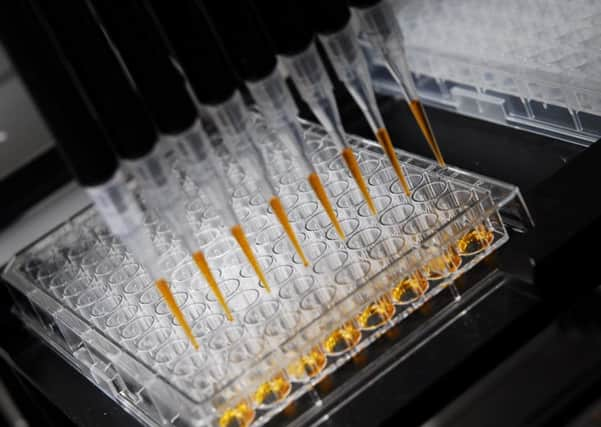University of Dundee teams up with pharma group to tackle Parkinson’s


The academia-business partnership sees the university’s Drug Discovery Unit (DDU) uniting with Bukwang Pharmaceutical Company, complementing existing drug discovery agreements the DDU has with Takeda and GlaxoSmithKline.
The university said Parkinson’s is the second-most common neurological disorder after Alzheimer’s disease, affecting around two people in every 1,000 – with 120,000 people in the UK alone living with the condition.
Advertisement
Hide AdAdvertisement
Hide AdIt also said a key biological event in the development of Parkinson’s disease is the accumulation and misfolding of a small protein in the brain that can kill nerve cells. Research at the University of Oxford has shown that an enzyme, USP8, prevents the natural breakdown of the protein.
Working with George Tofaris at Oxford, the DDU has identified a series of drug-like molecules that block USP8 and could reduce the levels of the protein in the brain, potentially providing a treatment to tackle the disease.
DDU head Paul Wyatt welcomed the partnership, adding: “Drug discovery for neurological disorders is especially challenging, and an area where academia and industry need to be working together.
“This project brings together the clinical and translational research expertise in Oxford with Dundee’s professional drug discovery capabilities allowing us to move one stage further towards a treatment.”
The Bukwang Pharm tie-up strengthens the existing Dundee-Oxford relationship, and the Korean firm will facilitate a further three-year programme of work at the universities to advance the drug-like molecules towards clinical development.
The aim is to formulate therapies for Parkinson’s and other relevant diseases. Bukwang chief executive Hee-Won Yoo said: “We are very impressed with the DDU’s depth of expertise and track record.”
Beckie Port, research manager at Parkinson’s UK, said: “Finding treatments that target the alpha-synuclein protein holds promise for one day slowing or stopping the progression of Parkinson’s – something no current treatment can do. It’s an exciting time for Parkinson’s research. ”
She welcomed researchers from the University of Dundee joining forces with the University of Oxford and Bukwang “to drive forward the development of drugs to help all those living with Parkinson’s”.